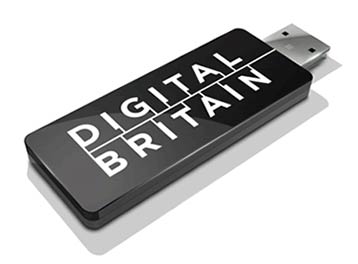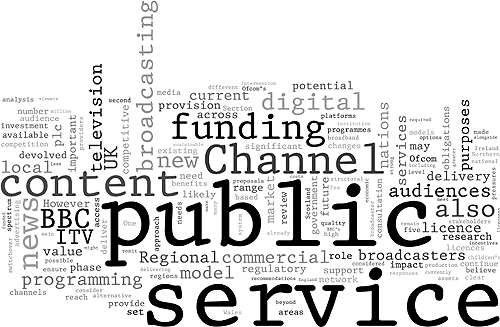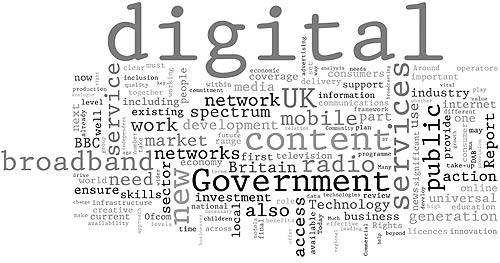Digital Britain Interim report - first impressions
Today is day that the interim 'Digital Britain' report was published by the DCMS. It follows hard on the heels of the Ofcom report into the future of Public Service Broadcasting as part of this curiously two pronged approach to sorting out the regulatory and policy future of the UK's media.

I turned the Ofcom document into a Wordle cloud:
I've done the same for today's Digital Britain interim report:
And, as prompted by @JemStone, here is the comparison chart between the recent Ofcom Public Service broadcasting paper and today's Digital Britain report for mentions of what I consider to be some of the critical emerging trends in our digital media sphere.
| Search term | Ofcom | DCMS |
|---|---|---|
| blogs | 0 | 0 |
| blogging | 0 | 0 |
| citizen journalist | 0 | 0 |
| citizen journalism | 0 | 0 |
| 0 | 0 | |
| findability | 0 | 0 |
| forum | 0 | 4 |
| 0 | 0 | |
| message board | 0 | 0 |
| MySpace | 0 | 0 |
| portal | 0 | 0 |
| search | 0 | 1 |
| search engine | 0 | 1 |
| social media | 0 | 0 |
| 0 | 0 | |
| YouTube | 0 | 1 |
So at least YouTube and search engines get a mention in the DCMS report - the use of the word 'forum' isn't in the online sense that I was meaning, however.
One final little bug-bear of mine with the report. How can it be that a document about technical literacy for the nation can't get the embedded page numbers and the page numbers of the PDF file in synch?



Martin, your table showing what has been overlooked in the two reports is just staggering. But should we be surprised?
The only social media activity I have come across by government has been activities such as that by No 10 Downing Street. Oh, it has a Twitter feed alright but does it do more than use social media to broadcast? As a colleague said last week, just because a site has community written all over it does not mean it is part of a community.
Could it be that the two reports leave out so much because they just do not understand or, worse still, do not know about these things?
Scary, eh?